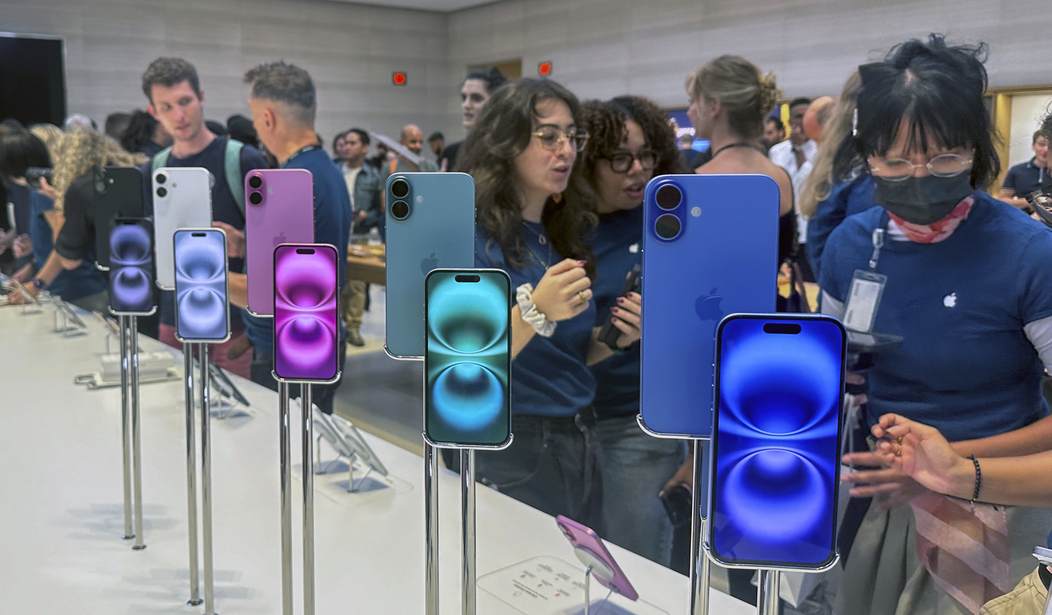Well, we might care, given how much use polling gets in electoral cycles. And in between electoral cycles. And in cultural issues, such as Sydney Sweeney's jeans and genes.
I'm only half-kidding about the latter, too. American Eagle claims to have conducted a poll that shows more than seven in ten Americans appreciate beauty and cheekiness in advertising:
According to a report posted by TMZ, an internal poll conducted by American Eagle shows that 70 per cent of people like the advertisement featuring The Handmaid’s Tale star Sydney Sweeney. “This is yet another example of how social media doesn’t reflect real life. The absurd response from some corners of the internet is absolutely not how American Eagle’s customers feel," an insider said to the portal.
Polls do play a rather important role in public affairs, which is one reason some pollsters tend to manipulate the process. We all rely on them to an extent, even while pointing out flaws and bad assumptions within them. One of the major buzz arguments this year is the 80/20 effect in politics, as Donald Trump seizes the consensus positions on key issues and Democrats keep clinging to the fringe -- say, on immigration enforcement, biological sex in policy, taxes, and so on.
You can't get to those arguments without some solid data. Polls, as flawed as they may be, are about the only such data on hand. So what will happen if phones and phone companies respond to consumer demand over spam calls with programming that will all but cut off pollsters from respondents?
My friend Patrick Ruffini warns that Apple's new operating system update will do exactly that for iPhone users. In a lengthy X/Twitter thread, Patrick lays out the stakes in iOS26:
iOS 26 will move calls and texts outside of a sender’s close contacts to an unknown senders tab. Many will welcome this as a way to fight spam.
— Patrick Ruffini (@PatrickRuffini) July 31, 2025
But a big unintended consequence of this will be to make it harder for pollsters to reach a representative sample of Americans.
I'm not so sure it's unintended. Pollsters used to have a season, when polling was mainly limited to politics and elections, and had fewer companies conducting surveys. Poll calling has become a constant river of unwanted attempts to delve into political and commercial tastes, and have afflicted the vast majority of people who don't live in politicized worlds. Creating programming that curates incoming calls to avoid telemarketing is an intentional choice, and pollsters may be one of the biggest practitioners.
Patrick disagrees:
Recognizing the vital role polling plays in our democracy, bona-fide research is treated differently from telemarketing, exempt from the Do Not Call list and other requirements—so long as polls don’t lead to a sales pitch.@Apple should also apply this same standard to iOS 26.
— Patrick Ruffini (@PatrickRuffini) July 31, 2025
The Do Not Call list is useless. I have repeatedly added my numbers to these lists, reported violations, and all to no effect at all. I simply won't answer any number that I don't recognize these days, which is extremely annoying on its own. Apple wouldn't bother to create this feature in iOS26 if all it planned to do was repeat the ineffectiveness of the Do Not Call registry. What would be the point of all that wasted programmer time?
Patrick is correct that polling does play an important part in national discourse, and be sure to click through to read his entire argument. However, that doesn't mean that people who use phones should be subjected to a constant bombardment of unsolicited calls to accomplish it for each and every pollster that hangs out a shingle. Apple didn't come up with this idea out of the blue, after all. Consumers have been demanding better screens for incoming calls, and apps like Robokiller and Nomorobo haven't achieved the sophistication necessary to deal with the sheer volume of such callers.
It is reasonable -- in fact, long overdue -- that phone companies create contact screening for incoming calls, with the option of sending all calls not linked to a contact to voicemail. If that damages the polling industry, then that industry had better find ways of making people more comfortable with phone-call contacts. Their targets don't owe them a moment of their time, after all, and don't benefit from allowing pollsters to commodify their time for the pollsters' commercial benefit. That's the main problem that pollsters have to solve, especially at the volume of intrusions that routinely occupy households the entire year long.
Editor's note: Here at Hot Air, we don't call your house to poll you incessantly. Heck, we barely speak to each other! What we do, however, is take on the Left, the woke, the Protection Racket Media, and the Big Tech platforms for censorship and manipulation -- even Apple! We can do that because of the great support we get from readers who team up with us to sustain independent platforms for debate, dissent, and truth.
Join Hot Air VIP and use the promo code FIGHT to get 60% off your VIP membership!








Join the conversation as a VIP Member